Real-World Experience Guides Machine Development
For this German machine tool builder, operating a robust contract manufacturing business helps inform the development of both new technology and solutions to customers’ individual production issues.
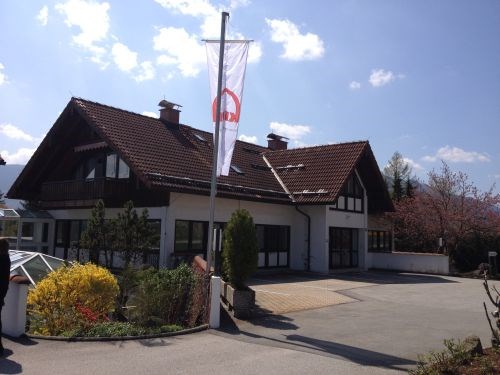
Nestled among the Alpine foothills in Bavaria, southern Germany, the building depicted above looks more like a home or a ski lodge than an advanced manufacturing plant. In fact, it’s the primary production facility of a company that claims to be Europe’s largest supplier of micro parts (loosely defined as those measuring less than 50 square mm). Although the components machined here are small, the facility’s outward appearance belies its size. Production occurs mostly underground on machinery that’s capable of achieving tolerances measured not in millimeters, but in microns.
Notably, the majority of that machinery was manufactured at this very same plant. The company, Kern Microtechnik, isn’t just a producer of discrete parts. It’s also a machine tool builder—a machine tool builder that’s ready and eager to apply its manufacturing expertise toward making further inroads with you, the U.S. mold manufacturer.
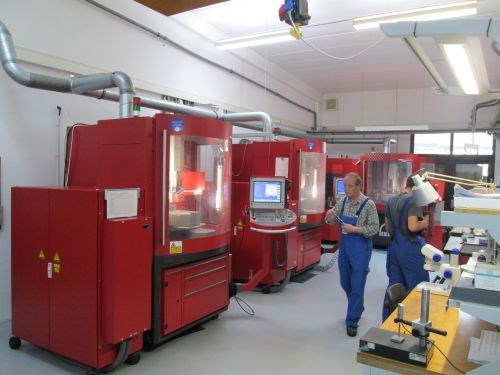
The company’s Marnau location is dedicated not just to building its own machines, but using those same machines to produce customer parts.
This focus on the U.S. mold and die sector is evidenced by more than just the invitation of MoldMaking Technology to the company’s April 23-24 “Precision Days” open house event. Recent years have seen European mold manufacturers purchase Kern machines in increasing numbers, and the company hopes to duplicate that success here in the States. So says Toni Mangold, who recently moved from Murnau to Webster, Massachusetts to serve as sales director for U.S. arm Kern Precision. Beyond personnel shifts, the operation recently expanded its U.S. presence through a partnership with Michigan-based machine tool supplier Merrifield Machinery Solutions.
Like those in Europe, U.S. mold shops potentially have much to gain from technology informed by real-world experience in manufacturing some of the most intricate parts on the globe, Mangold says. The company’s experiences with its own machines in actual contract applications, which account for 80 percent of the Murnau plant’s business, better prepares it to help other users with their own production challenges, he explains. Likewise, lessons learned in contract manufacturing help engineers design better machines at the headquarters and assembly facility in nearby Eschenlohe.
The company’s most precise machine is the Pyramid Nano, which features hydrostatic drives and guides in all linear axes. This model is an ideal fit for shops with a niche in parts that with exceptionally stringent accuracy and surface finish requirements, Mangold says.
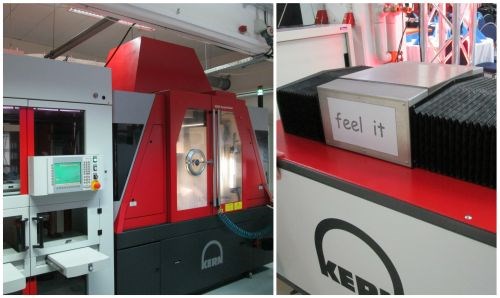
The Pyramid Nano, shown on the left cutting hard ceramic dental implants at the contract manufacturing operation in Murnau, incorporates all hydrostatic axes. The company invited attendees to “feel” the benefits for themselves with the functional model of the axis structure on the right.
However, he says the latest offering, the Kern Micro, is more accessible for the vast majority of even the most demanding mold manufacturing applications. Building on the success of the earlier Evo model, the Micro’s positional accuracy of +/- 0.5 µm in both three- and five-axis configurations places it firmly within the company’s historical niche: Complex, intricate machining to extremely tight tolerances.
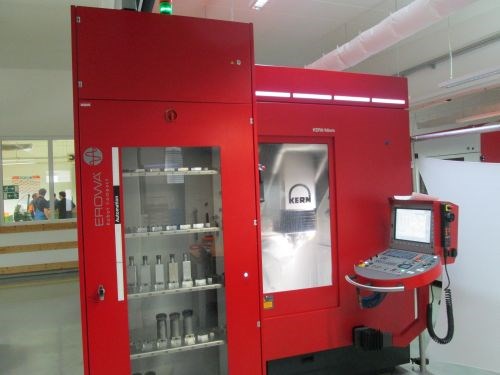
The Micro in this shot is set up with an Erowa robot compact for a particularly challenging application: completely unattended production of customer parts made from material that’s 23-percent cobalt. The machine’s temperature stability, CBN cutting tools and in-machine laser from Blum are just a few critical aspects of manufacturing these parts effectively, not to mention careful process engineering.
Although the Micro was the machine I focused on most during my time at Kern, the machine’s broad moldmaking appeal wasn’t the only reason. For me at least, the design concepts behind the machine’s flexibility and precision seemed just as noteworthy as its raw capability. Highlights include an aluminum axis structure, a different type of travel system, a proprietary temperature-control concept, and a particularly versatile toolchanger design, all of which are covered in more detail here.
Related Content
MMT Chats: Acquisition Trends and Lessons for Mold Builders
Jim Berklas is a former full-time M&A lawyer for several of the largest private equity firms in the country and has 25 years of M&A experience and 200 closed transaction. Today, he is founder and M&A Leader with Augmented Industry Services. He joins me for this MMT Chat on mergers and acquisitions trends and strategies within in the mold manufacturing industry. This episode is brought to you by ISCAR with New Ideas for Machining Intelligently.
Read MoreMMT Chats: 5 in 5 with Best Tool and Engineering
MoldMaking Technology Editorial Director Christina Fuges reveals 5 best practices for improving efficiencies within shops...in 5 minutes. Our guest is Joe Cherluck, President of Best Tool and Engineering in Clinton Township, Michigan. This episode is brought to you by ISCAR.
Read MoreMMT Chats: Marketing’s Impact on Mold Manufacturing
Kelly Kasner, Director of Sales and Marketing for Michiana Global Mold (MGM) talks about the benefits her marketing and advertising, MGM’s China partnership and the next-generation skills gap. This episode is brought to you by ISCAR with New Ideas for Machining Intelligently.
Read More2021 30 Under 30 Honors Program: Mentoring in the Next-Generation of Moldmaking Professionals
Young professionals are vital to the moldmaking industry, and it is important to acknowledge those making strides in shaping the industry's future. MoldMaking Technology recognizes the industry's young talent through its 30 Under 30 Honors Program.
Read MoreRead Next
How to Use Strategic Planning Tools, Data to Manage the Human Side of Business
Q&A with Marion Wells, MMT EAB member and founder of Human Asset Management.
Read MoreReasons to Use Fiber Lasers for Mold Cleaning
Fiber lasers offer a simplicity, speed, control and portability, minimizing mold cleaning risks.
Read MoreHow to Use Continuing Education to Remain Competitive in Moldmaking
Continued training helps moldmakers make tooling decisions and properly use the latest cutting tool to efficiently machine high-quality molds.
Read More


















.jpg;maxWidth=300;quality=90)
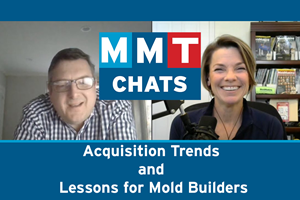
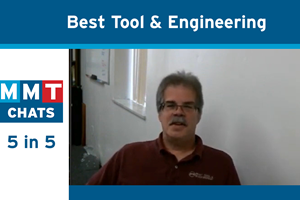
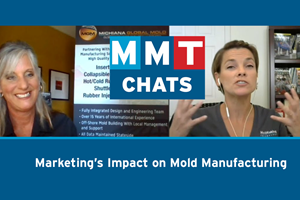
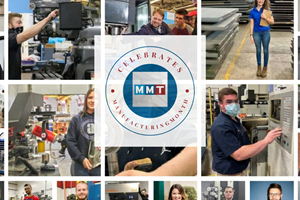



_970x250 1.png;maxWidth=970;quality=90)